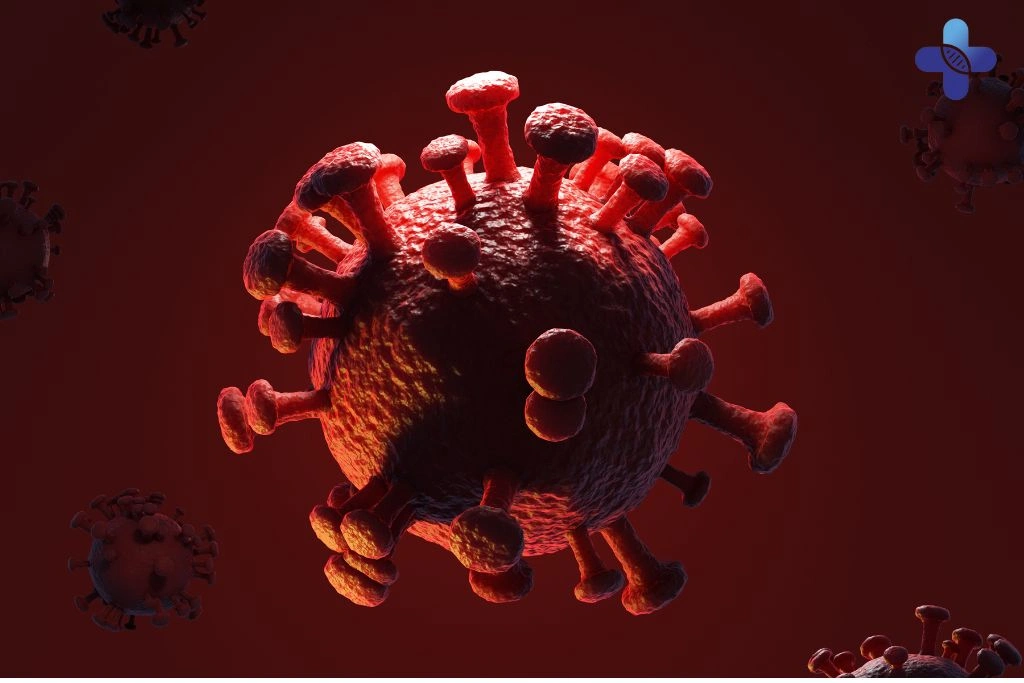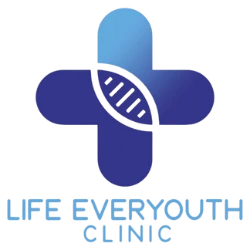Trichomonas vaginalis is a common sexually transmitted infection (STI) that affects both men and women. As one of a Bali STDs, it often goes unnoticed due to its asymptomatic nature but can cause discomfort and increase the risk of other infections if left untreated. If you’re in Bali and concerned about Trichomonas, it’s important to understand the symptoms, treatment options, and where to seek medical help. Life Everyouth Clinic Bali offers confidential testing, expert treatment, and guidance to help individuals manage and prevent STDs effectively.

What is Trichomonas and How Does It Affect Your Health?
Trichomonas is a sexually transmitted infection (STI) caused by the parasite Trichomonas vaginalis, primarily affecting the urogenital tract and leading to irritation or inflammation. It is commonly transmitted through unprotected vaginal intercourse and often goes undiagnosed due to its asymptomatic nature in many individuals. While not always severe, untreated Trichomonas can increase the risk of pelvic inflammatory disease (PID), HIV transmission, and pregnancy complications. Both men and women can carry the infection, with symptoms being more noticeable in women. Regular STI testing is essential for early detection and effective treatment, particularly for those with multiple sexual partners.
What is Trichomonas?
Trichomonas is caused by a parasite called Trichomonas vaginalis. The infection is transmitted through sexual contact, including vaginal intercourse. Many infected individuals may not experience symptoms, making regular STI testing crucial for sexual health.
Symptoms of Trichomonas: How to Recognize the Infection
Trichomonas infections can present different symptoms in men and women, though some individuals may remain asymptomatic. The severity of symptoms can vary, with some experiencing mild discomfort while others face more noticeable irritation and inflammation.
In Women
The most common symptoms include vaginal itching, a burning sensation, and discomfort during urination. Some women also experience increased vaginal discharge that appears frothy, yellow-green, and has a strong, unpleasant odor. Pain during sexual intercourse (dyspareunia) and irritation around the vaginal area are also frequent indicators of infection. If left untreated, Trichomonas can lead to complications such as bacterial vaginosis or increased susceptibility to other sexually transmitted infections (STIs).
In Men
Trichomonas often goes unnoticed in men, but when symptoms do appear, they typically include a burning sensation after urination or ejaculation, irritation inside the penis, and a mild, sometimes cloudy discharge. Some men may also experience an increased urge to urinate due to irritation in the urethra. Although complications are less common in men, untreated infections can contribute to chronic prostatitis or increase the risk of passing the infection to sexual partners.

Diagnosis & Treatment: How to Effectively Manage Trichomonas
Diagnosing Trichomonas requires a laboratory test, typically performed using a vaginal swab in women or a urethral swab in men. In some cases, a urine test may also be used to detect the parasite. Since Trichomonas symptoms can be mild or mistaken for other infections, testing is essential for accurate diagnosis. Many individuals remain asymptomatic, making regular STI screening crucial, especially for those with multiple sexual partners.
Once diagnosed, Trichomonas is easily treatable with oral antibiotics, primarily metronidazole or tinidazole, which are prescribed as a single dose or a short course of treatment. These medications are highly effective, but it is essential to complete the full course as directed to ensure the infection is fully eradicated. To prevent reinfection, both partners must be treated simultaneously, even if they do not exhibit symptoms. Patients are also advised to abstain from sexual activity until treatment is completed and symptoms have resolved.
Where to Get Tested for Trichomonas in Bali?
If you’re in Bali and need Trichomonas testing or STI treatment, Life Everyouth Clinic Bali provides confidential, professional, and comprehensive sexual health services. Our clinic offers fast and accurate STI screening, expert medical consultations, and effective treatment options tailored to your needs. Whether you’re experiencing symptoms or simply seeking routine testing, our Bali medical clinic ensures a private and comfortable environment for all patients. Prioritize your health—schedule your STD test in Bali today at Life Everyouth Clinic Bali.

Tips to Prevent Trichomonas
Use Condoms Consistently
Using condoms or dental dams during sexual intercourse significantly reduces the risk of Trichomonas transmission. While not 100% effective, condoms act as a protective barrier that helps prevent direct contact with infected bodily fluids.
Get Regular STI Screenings
Since Trichomonas often presents no symptoms, routine STI screenings are essential, especially for individuals with multiple sexual partners. Early detection and treatment help prevent complications and reduce the risk of unknowingly transmitting the infection.
Avoid Sharing Personal Hygiene Products
Trichomonas is primarily transmitted through sexual contact, but avoiding the sharing of personal hygiene items like towels, underwear, or washcloths helps maintain overall hygiene and reduces the risk of contamination from bodily fluids.
Complete the Full Course of Medication
If diagnosed, take the prescribed antibiotics exactly as directed by your doctor. Stopping treatment early can lead to persistent infection or reinfection, especially if your partner is untreated. To ensure full recovery, both partners should complete the full treatment course and abstain from sex until the infection is cleared.

Conclusion of Trichomonas in Bali: Symptoms & Testing
Trichomonas is a treatable condition, but early detection is essential. If you’re experiencing symptoms or need an STI test in Bali, visit Life Everyouth Clinic for reliable medical care. Prioritizing your sexual health can prevent complications and protect your well-being.
Frequently Asked Questions of Trichomonas in Bali: Symptoms & Testing
Is Trichomonas a serious infection?
Trichomonas is not considered life-threatening, but it can cause significant discomfort and complications if left untreated. The infection can lead to chronic irritation, inflammation, and an increased risk of acquiring or transmitting other sexually transmitted infections (STIs), including HIV. In women, Trichomonas has been associated with bacterial vaginosis and pregnancy complications such as preterm labor and low birth weight. While it is easily treatable, early detection and proper treatment are crucial to preventing long-term health risks.
Can Trichomonas go away on its own?
No, Trichomonas does not resolve without medical intervention. Unlike some minor infections that the immune system can clear, Trichomonas requires a prescription antibiotic such as metronidazole or tinidazole to eliminate the parasite. Without treatment, the infection can persist for an extended period, increasing the risk of complications and transmission to sexual partners. Seeking prompt medical attention is the best approach to managing the infection.
Where can I get tested for Trichomonas in Bali?
If you’re in Bali and need STI screening, Life Everyouth Clinic Bali offers confidential, accurate, and professional Trichomonas testing. Our experienced medical team provides discreet consultations, reliable laboratory diagnostics, and effective treatment options to ensure your sexual health and well-being. Whether you have symptoms or want a routine checkup, you can schedule an appointment at our Bali medical clinic for comprehensive care.
How long does Trichomonas last?
Without proper treatment, Trichomonas can persist for months or even years, as the body does not naturally clear the infection. Many people remain asymptomatic carriers, unknowingly spreading the infection to others. With antibiotic treatment, symptoms typically resolve within a few days, and the infection is completely eliminated within a week. However, reinfection is common, so it is essential that both partners complete treatment and follow medical advice.
Can men get Trichomonas?
Yes, men can carry, transmit, and develop symptoms of Trichomonas, though they are often asymptomatic. When symptoms occur, they may include burning during urination or ejaculation, irritation inside the penis, and mild discharge. Because men frequently show no signs of infection, they may unknowingly pass it to their partners. Routine STI testing is essential to detect and treat the infection, even in the absence of symptoms.
What happens if Trichomonas is untreated?
Untreated Trichomonas can lead to serious health complications. In women, it increases the risk of pelvic inflammatory disease (PID), infertility, and pregnancy-related issues such as preterm birth. In both men and women, it raises the likelihood of acquiring or spreading HIV and other STIs. Additionally, persistent inflammation and discomfort can affect overall quality of life. Seeking timely medical treatment prevents complications and stops further transmission.
Can Trichomonas be detected in a urine test?
Yes, urine tests can sometimes detect Trichomonas, but they are less accurate than swab-based tests. The most reliable method for diagnosing Trichomonas involves a vaginal swab in women or a urethral swab in men, analyzed using a nucleic acid amplification test (NAAT). If you suspect an infection, consulting a medical professional at Life Everyouth Clinic Bali can help determine the most effective testing method.
Is Trichomonas the same as a yeast infection?
No, Trichomonas and yeast infections are completely different conditions. Trichomonas is caused by a parasite, while yeast infections result from an overgrowth of fungi, typically Candida albicans. Although both conditions may cause itching, irritation, and abnormal discharge, their causes, treatments, and risk factors differ. A medical professional can help differentiate between the two through appropriate testing and examination.
Can I get Trichomonas from a toilet seat?
No, Trichomonas is a sexually transmitted infection (STI) and is not spread through toilet seats, public restrooms, or shared surfaces. The parasite requires a moist environment and direct contact to survive, which is why it is primarily transmitted through unprotected vaginal intercourse. Casual contact, such as sharing food, touching objects, or hugging, does not spread the infection.
How soon after exposure should I get tested?
If you suspect exposure to Trichomonas, testing is recommended one to two weeks after potential infection. This timeframe allows for the parasite to be detectable in diagnostic tests, ensuring accurate results. If you have symptoms, you should seek testing and medical attention immediately. Routine STI screenings are also advisable for individuals who are sexually active, especially those with new or multiple partners.

